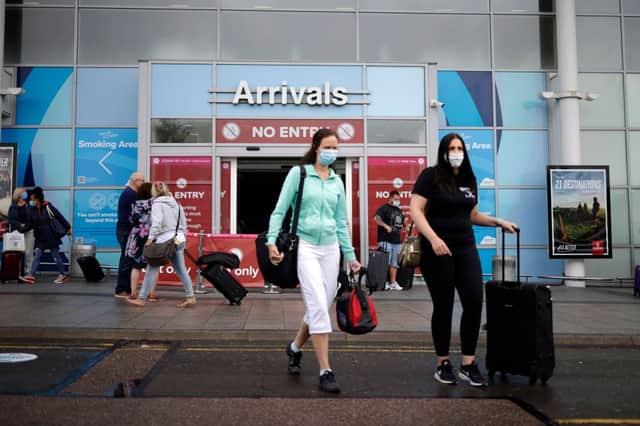These are the quarantine rules you need to follow after being on holiday - and if you can go outside


Holidaying abroad has gradually got underway again after the ban on foreign travel was lifted in July, with the UK government releasing a list of approved countries to visit.
More than 70 countries and territories have been included on the government travel corridors, which enables travellers to visit select regions without facing quarantine restrictions on their return.
Advertisement
Hide AdAdvertisement
Hide AdHowever, in response to fluctuations in coronavirus infections, several countries have since been removed from the list after being ruled too high-risk for travellers.
Spain, France, Portugal, Croatia and Switzerland are among the countries that have been added to the quarantine list, meaning any travellers who return to the UK from these destinations will be required to self-isolate on their return.
What are the quarantine rules?
Travellers returning to the UK from a country on the quarantine list will need to self-isolate in one place for a period of 14 days, as it can take up to a fortnight to develop coronavirus symptoms allowing time for it to be passed on to others.
On arrival you will be asked to provide an address where you will self-isolate for 14 days, and you should head straight to this accommodation.
Advertisement
Hide AdAdvertisement
Hide AdTravellers should drive their own car to the location where they will self-isolate if possible, and the government will arrange accommodation at the traveller’s expense for those who do not provide an address.
Public transport from the airport should only be used if you have no alternative option, and a face covering should be worn at all times.
You must self-isolate at the address you provided on the public health passenger locator form, which can include:
- your own home
- with friends or family
- a hotel or other temporary accommodation
You should not have visitors, including friends and family, unless they are providing:
Advertisement
Hide AdAdvertisement
Hide Ad- emergency assistance
- care or assistance, including personal care
- medical assistance
- veterinary services
- certain critical public services
You cannot go out to work or school or visit public areas during the quarantine period, and should not go shopping.
If you require help buying groceries, other shopping or picking up medication, you should ask friends or relatives or order a delivery.
In England, you must only exercise within your home or garden and you cannot leave your home to walk your dog. You will need to ask friends or relatives to help you with this.
If travellers fail to self-isolate, they can be fined up to £1,000 in England, Wales and Northern Ireland, and up to £480 in Scotland. Persistent offenders can land a fine of up to £5,000.
Advertisement
Hide AdAdvertisement
Hide AdWhen am I allowed to leave my home?
You are only permitted to leave your accommodation in limited circumstances. These include where:
- you are travelling directly in order to leave the UK
- you need urgent medical assistance (or where your doctor has advised you to get medical assistance)
- you need urgent access to veterinary services (or on the advice of a veterinary surgeon)
- you need to fulfil a legal obligation, such as participate in legal proceedings
- you need to avoid injury or illness or to escape a risk of harm
- you are going to the funeral of a family member or someone you live with
- you are visiting a dying or critically ill family member or someone you live with
- you need to access basic necessities like food and medicines where you cannot arrange or these to be delivered
- you are moving to a different place for self-isolation where you can no longer remain where you are
A version of this article originally appeared on our sister site, The Scotsman.